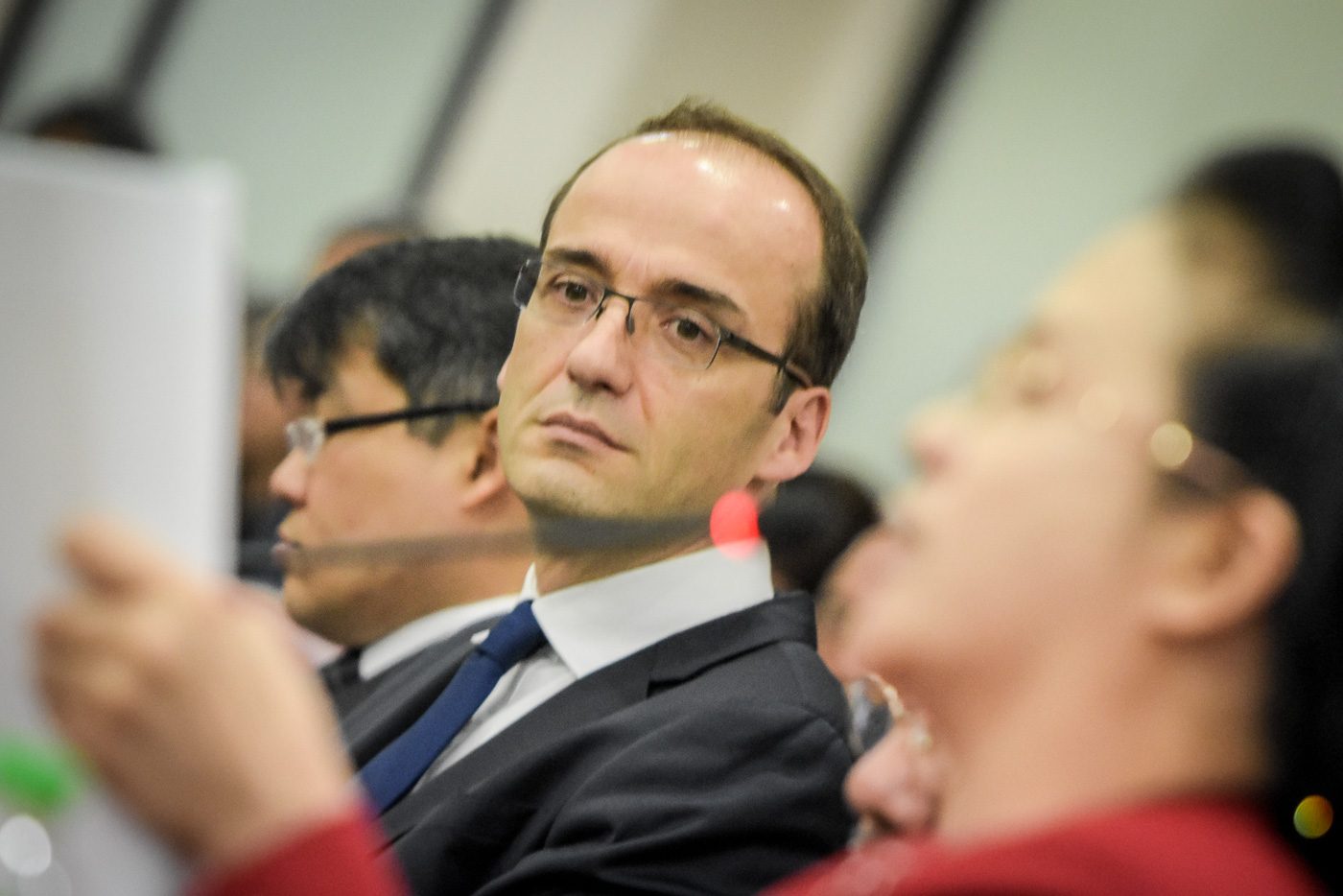SUMMARY
This is AI generated summarization, which may have errors. For context, always refer to the full article.

MANILA, Philippines – French pharmaceutical giant Sanofi Pasteur denied accusations it concealed risks of its Dengvaxia dengue vaccine from the Philippine government in 2015.
The company’s defense: In a statement on Wednesday, February 28, Sanofi said it was only in November 2017 when it discovered Dengvaxia could lead a person to develop severe dengue if he or she had not been infected by the virus before vaccination.
Sanofi said it immediately announced its findings – which were based on 6-year analysis of clinical data – on November 29, 2017.
“For the dengue vaccine, from the time of the sale, until November 2017, we had no information or data with regards to the serostatus of the vaccinees showing a different product profile in the population of 9 years old and above,” said Sanofi.
Serostatus indicates if a person had already been infected by a virus (seropositive) or not (seronegative).
“We learnt of the different product profile of the dengue vaccine for those with or without a previous dengue infection in November 2017 and Sanofi Pasteur has shared the new data in full transparency with national health authorities in countries where the vaccine is approved or where it is being considered for regulatory approval,” Sanofi added.
Why the company is defending itself: In a congressional hearing two days before, Food and Drug Administration (FDA) Director-General Nela Charade Puno said Sanofi was already aware of Dengvaxia’s possible effect on seronegative patients as early as 2015.
The FDA’s special task force on Dengvaxia reviewed the papers Sanofi had submitted to Singapore, which allowed the commercial sale of the dengue vaccine there in October 2016.
Puno said Sanofi already informed Singapore at the time that Dengvaxia is risky for seronegative people.
Why it matters: Dengvaxia was the vaccine used when ex-Department of Health (DOH) chief Janette Garin launched the school-based dengue vaccination program in 3 regions in April 2016. (READ: TIMELINE: Dengue immunization program for public school students)
Public experts had claimed the program was “rushed” because the clinical trial on the vaccine’s safety had not been completed at the time.
When Sanofi issued the warning against Dengvaxia less than two years later, current Health Secretary Francisco Duque III immediately suspended the program. But more than 837,000 kids had already gotten the vaccine.
While experts have not yet established clear evidence that Dengvaxia caused the deaths of several children, 3 out of 14 were found to have died of dengue despite getting at least one shot of Dengvaxia. – Rappler.com
Add a comment
How does this make you feel?
There are no comments yet. Add your comment to start the conversation.